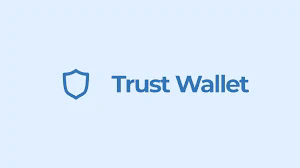Can You Use Trust Wallet in New York? A Comprehensive Analysis
## Introduction to Trust Wallet
Trust Wallet is a popular mobile cryptocurrency wallet that supports a wide range of cryptocurrencies and tokens. It is particularly favored for its user-friendly interface and features that allow users to store, send, and receive digital assets securely. Trust Wallet was acquired by Binance in 2018, enhancing its reputation and accessibility in the crypto community. With an increasing number of users migrating to decentralized financial systems, the question arises: Can residents of New York effectively use Trust Wallet? This article aims to explore this question while delving into the regulations, features, and implications of using Trust Wallet in New York.
## Understanding Cryptocurrency Regulations in New York
### Overview of Regulatory Environment
New York has a unique and stringent regulatory environment for cryptocurrencies compared to other states. The New York State Department of Financial Services (NYDFS) has implemented the BitLicense, which requires virtual currency businesses to obtain a license to operate in the state. This regulatory framework was designed to protect consumers and ensure that companies comply with anti-money laundering (AML) and know-your-customer (KYC) regulations.

### Implications for Digital Wallets
For users of Trust Wallet, it is essential to understand that while the wallet itself may not require a BitLicense, the exchanges and services that integrate with it may. For instance, if a user aims to buy bitcoins or other cryptocurrencies through a New York-based exchange, that exchange must be licensed, potentially limiting the options available to users.
## Trust Wallet Features
### Multi-Currency Support
One of the standout features of Trust Wallet is its support for a vast array of cryptocurrencies. Users can store major coins like Bitcoin, Ethereum, and Litecoin, as well as thousands of tokens built on platforms like ERC-20 and BEP-20. This flexibility means users in New York can manage diverse portfolios from a single application.
### Decentralization and Control
Trust Wallet emphasizes user sovereignty over funds. As a non-custodial wallet, it allows users to maintain complete control over their private keys, thereby eliminating concerns regarding centralization risks. New York users can benefit from this feature, especially amid growing discussions about privacy and control in the crypto space.
### Integration with Decentralized Applications (DApps)
Another significant advantage is Trust Wallet’s integration with DApps. Users can directly interact with decentralized applications, making it easier to participate in various activities like staking, trading, and more. However, users must be cautious about the legality and security of using specific DApps, especially those not compliant with New York regulations.
## The Pros and Cons of Using Trust Wallet in New York
### Advantages
1. **User-Friendly Interface**: Trust Wallet offers a simple navigation system making it accessible for both beginners and seasoned investors.
2. **Enhanced Security**: Given its non-custodial nature, users retain control over their funds, reducing the risk of exchanges being hacked.
3. **Diverse Cryptocurrency Options**: With the ability to store various cryptocurrencies and tokens, users in New York can easily diversify their digital assets.
4. **Seamless DApp Interaction**: Users can access a range of decentralized applications directly through Trust Wallet, opening avenues for investment, gaming, and more.
### Disadvantages
1. **Regulatory Uncertainty**: The ever-changing landscape of cryptocurrency regulations in New York could impact the functionalities available to Trust Wallet users.
2. **Limited Exchange Options**: Users may face challenges when trying to convert their digital assets to fiat due to the strict regulations surrounding exchanges.
3. **Complexity of Operations**: For beginners, navigating DApps and understanding the implications of smart contracts can be daunting.
## User Experience: Trust Wallet in New York
### Getting Started
For New Yorkers interested in using Trust Wallet, the initial setup is straightforward. Users can download the wallet from the official website or app stores, create a new wallet, and securely back up their recovery phrase. However, users should remain vigilant about security, given the rise in phishing attacks targeting crypto wallets.
### Buying and Selling Cryptocurrency
While Trust Wallet allows users to store and manage cryptocurrencies, buying or selling coins often requires a linked exchange. Users in New York may find it necessary to use licensed exchanges such as Coinbase or Kraken, which may integrate directly with Trust Wallet for easier transactions. However, regulatory concerns can complicate this process.
### Interacting with DApps
New Yorkers can explore various DApps directly from Trust Wallet. Activities such as decentralized finance (DeFi), decentralized exchanges (DEXs), and non-fungible token (NFT) marketplaces are easily accessible. However, users should ensure they are using compliant platforms to avoid potential legal issues.
## Security Features of Trust Wallet
### Private Key Management
Trust Wallet provides users with a seamless way to manage their private keys. By not storing private keys on centralized servers, users retain full control and ownership of their funds. It’s vital for users to remember that losing access to their recovery phrase will result in permanent loss of access to funds.
### In-App Security Measures
Trust Wallet employs various security measures, including biometric access and encryption, to safeguard user data. New Yorkers should enable these features to enhance their wallet’s security and prevent unauthorized access to their funds.
### Community and Developer Support
Trust Wallet has a strong community and developer support network, ensuring that issues are quickly addressed, and enhancements are continually made. Engaging with the community can help users stay informed about updates and best practices.
## Conclusion: The Future of Trust Wallet in New York
The future of Trust Wallet in New York largely depends on the regulatory landscape and user demand for decentralized financial solutions. Given the challenges posed by regulations, users interested in Trust Wallet must remain informed about potential changes in legislation that could affect their operations.
The advantages of using Trust Wallet—control over assets, a diverse selection of cryptocurrencies, and access to DApps—make it an attractive option for many New Yorkers. However, as with any financial service, users must conduct thorough research, stay updated on regulatory changes, and prioritize security to maximize their experience.
In conclusion, while residents in New York can use Trust Wallet, they should navigate the complexities of regulation and operational limitations to ensure they can effectively manage and grow their cryptocurrency portfolios. As the landscape evolves, so too will the opportunities for users, reinforcing the importance of staying engaged in the dynamic world of cryptocurrency.


